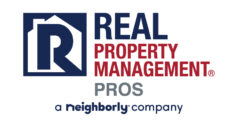The economy is rebounding in a big way, and many investors are once again thinking of claiming their corner of the residential real estate market. Now is as good a time as any, we say.
While the market may be primed, the days of quick and simple financing are long gone. Tougher credit checks can make the process of securing a loan more difficult, but with a little ingenuity and a lot of organization, you too can make your dream of owning investment property a reality.
If your time is now (HINT: It is!), consider these tips for success.
SAVE, SAVE, SAVE
When it comes to financing an investment property, you can forget about mortgage insurance. Potential lenders will require a down payment of at least 20 percent — 25 percent is ideal, considering rising interest rates — to guarantee traditional financing.
Pay attention to your credit.
If you don’t know your credit score, you should. Though many factors play into the terms of an investment property loan (loan-to-value ratio, lender’s terms, etc.), the single most important is the borrower’s credit score. A number below 740 will not only mean stricter loan terms, but also higher interest rates.
Avoid the big banks.
Put simply, local and regional banks are going to offer more flexibility than the much larger, national financial institutions. Say your down payment is lower than you’d like it to be, but you really want to purchase and renovate that gorgeous, historic home, to rent. A mortgage lender with ties to the community will understand the local market better, and might find more value in investing locally — even if you’re only prepared to put 18 percent down.
Prepare your paperwork.
Any lender, even a sympathetic one, is going to need to see proof of any potential buyer’s solvency. And this proof comes in the form of a lot of paperwork. Gather, and be prepared to produce two months’ bank statements (including investment and retirement accounts); at least two recent pay stubs, or a certified letter from your CPA proving two years’ self employment, and business financial statements; your driver’s license and Social Security card; and bankruptcy, divorce, or separation papers, if applicable.
Be realistic.
If you think the process to finance and purchase an investment property is expensive, just wait until the place is yours. Take it from the management pros: Overestimate your costs, and underestimate your income.
